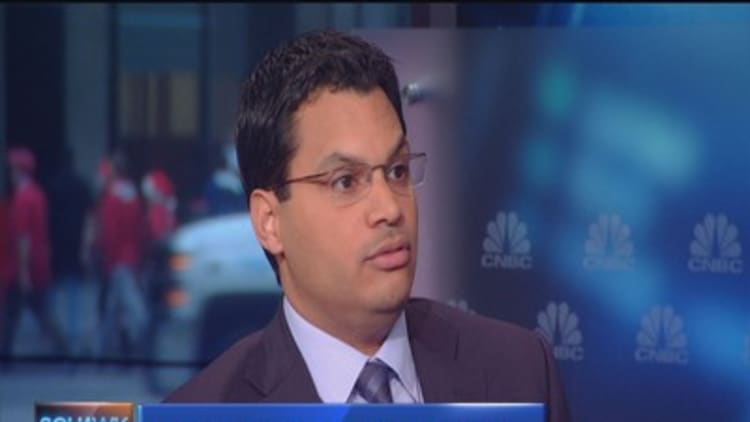An online investment platform that allows Chinese investors to access a number of "alternative" U.S. investments officially launched Monday.
Financial technology firm MarketX lets upper-middle class and institution Chinese investors to invest in tech firms that have not yet issued shares to the general public. These include such notable names as ride-hailing giant Lyft, music platform Spotify, bulletin board site Pinterest and workplace messaging app Slack.
But they will also be given the opportunity to enter less tapped markets such as litigation finance and real estate, artificial intelligence, customizable portfolios driven by themes like health, and companies founded by Tesla's Elon Musk.
"Our goal is to improve the access to U.S. financial products but also education for a new generation of wealthy individuals and institutions to access this pool of investments that previously was only free to really ultra-high networks of individuals and private banks," Cathryn Chen, founder and CEO of MarketX, told CNBC in a phone call ahead of the announcement.
Chen told CNBC that her company has been expanding its reach into the Asia-Pacific region.
"Over the last two years we've built offices around Shanghai, Beijing, Singapore, Shenzhen and our main offices in San Francisco."
Focus on 'underserved' Chinese investors
A UBS study last week found that one billionaire is created every two days in Asia. The study found there was a 17 percent increase in super-rich individuals year-on-year, supported by a surge among Asia's wealthy.
But Asia's wealthiest already have access to U.S. markets, MarketX said, adding that it wants to target "underserved" affluent Chinese investors with its digital platform.

"Previously you have investors that are very wealthy, in the top 1 percent. They have access to the JPMorgans, Goldman Sachs of the world," Chen said.
"They can invest at least a couple million dollars into companies like that. And even for those people, they have limited access."
Chen, who previously worked for JPMorgan, Deutsche Bank and Rothschild, explained that the thinking behind her firm's product was the frustration faced by Chinese investors pushed to the back of the line when it came to pre-IPO (initial public offering) investments.
"After working at JPMorgan I realized there was a problem with a lack of supplies. Whenever we do a U.S. IPO, the opportunity would only go to Asia after the U.S. or European players. And I realized a lot of times I would have to apologize to my clients, saying, 'We don't actually have as much allocation for you, you wanted to put in $20 million but we only have $2 million left.'
"So I think that was the ignition for me starting a cross-border investment platform."
China's expanding tech market
China already has a rising tech market, with established giants like Alibaba and Tencent dominating the scene. But MarketX's Chen explained that the focus on U.S. companies was due to a lack of platforms addressing the problem of cross-border investing.
"Unfortunately, a lot of people don't have access to overseas investment. It's not because they don't want to invest, because according to modern portfolio theory they should always diversify a portion of their assets so that they can achieve a certain level of risk-adjusted returns."
She told CNBC that there are already platforms in China that only cater for investment in domestic firms.
MarketX would give investors access to more than 40 pre-IPO markets around the U.S., and is able to monitor prices in real time.
The business raised $1.6 million in seed funding from a group of investors earlier this year.





